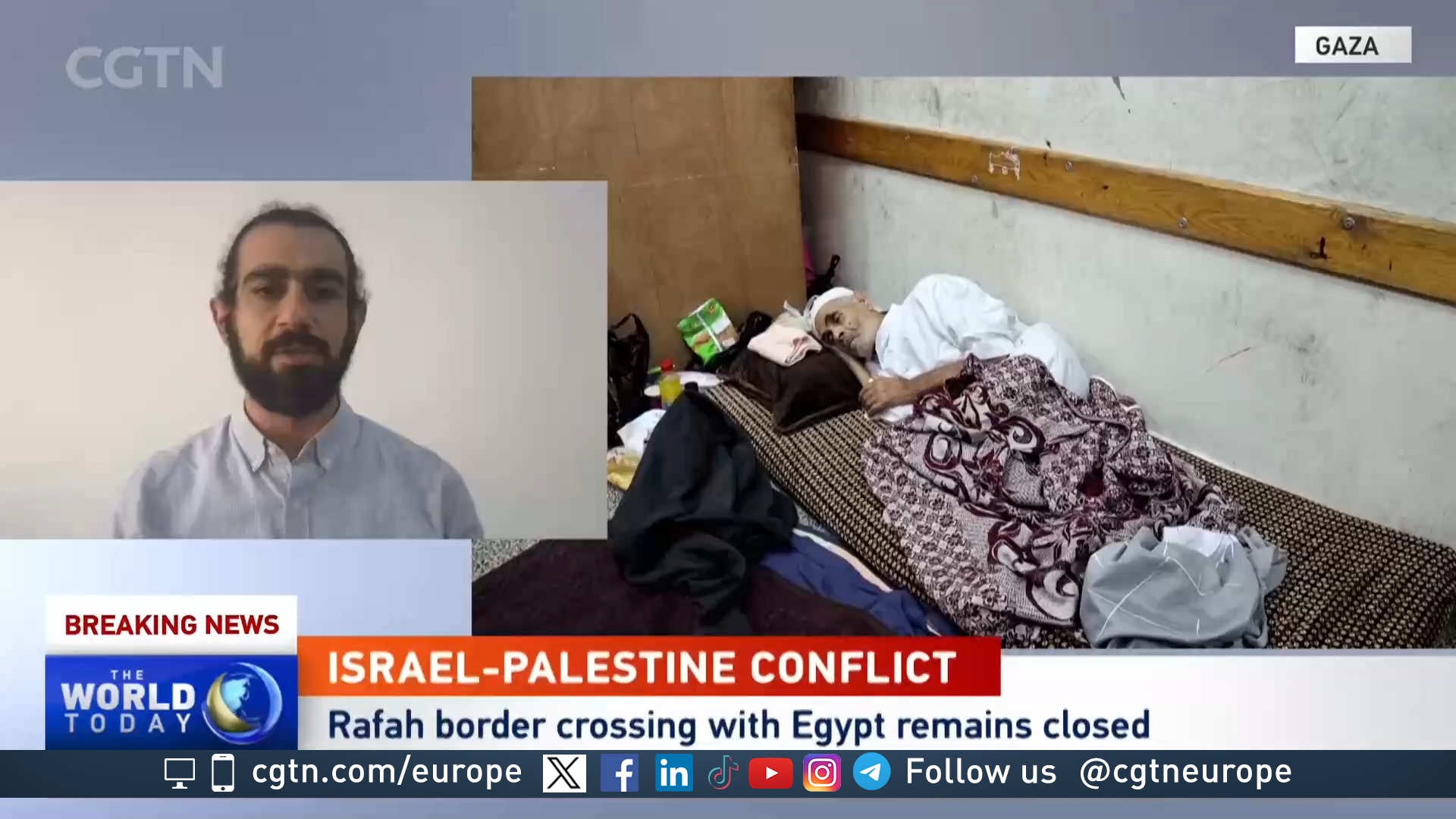02:57

The UN's children agency UNICEF has warned that unless aid groups are granted safe access to help victims in Gaza, the situation there will quickly degenerate into a 'humanitarian catastrophe,' as millions of Palestinians grapple with Israel's "total siege" of the enclave - and ready for what is set to be an incursion by land, air and sea according to Israel's Prime Minister Benjamin Netanyahu.
Following Hamas's attack on civilians in Israel last Saturday, which left 1,300 dead, the Israeli military launched its most intense bombardment of the Gaza Strip ever, with airstrikes and shelling killing more than 2,200 Palestinians - around 60 percent of them women and children - in under a week.
READ MORE
Palestinians flee north Gaza as Israel prepares ground assault
Israeli evacuation order 'impossible', says Red Cross
How ancient China links to the world
With a ground assault in the offing, Israel has since given the entire population of northern Gaza just 24 hours to evacuate the area, forcing hundreds of thousands of Palestinians to flee south amid relentless shelling - adding to around 400,000 that have already been displaced this week.
With all exits from the Palestinian territory blocked, Salim Oweis, a UNICEF communications officer for its Middle East office, reiterated UN Secretary General Antonio Guterres's call for Israel to rescind its order, telling CGTN Europe that such a mass evacuation under the circumstances was incredibly dangerous.
"Over 1 million people are being asked to move out of the area, which is really unsustainable… It puts all of them in danger, whether they are children, families, patients or injured people," Oweis told CGTN Europe. "It's really awful, especially for children and families that are literally running for their lives and they don't have anywhere to run."

Palestinian girl Fulla Al-Laham, 4, who was wounded in an Israeli strike that killed 14 family members, including her parents and all her siblings, lies on a bed as her grandmother sits next to her at a hospital in the southern Gaza. /Mohammed Salem/Reuters
Palestinian girl Fulla Al-Laham, 4, who was wounded in an Israeli strike that killed 14 family members, including her parents and all her siblings, lies on a bed as her grandmother sits next to her at a hospital in the southern Gaza. /Mohammed Salem/Reuters
The only route out of Gaza not under Israeli control is a checkpoint with Egypt at Rafah, and while Egypt officially says its side is open, traffic has been halted for days because of Israeli strikes. Egyptian security sources said the Egyptian side is being reinforced and Cairo has no intention of accepting a mass influx of refugees.
Meanwhile, countries and aid agencies that have sent supplies to Egypt have so far been unable to bring them into Gaza, while Israel says nothing can enter through Rafah without its coordination. Adding to the humanitarian disaster there, it is almost impossible for aid workers to operate without fear off death. Israeli strikes have already killed at least 12 people from the UN's Palestinian refugee agency and four Red Cross employees in the last week.
"It's really horrific what is going going on in Gaza. We are heading towards a humanitarian catastrophe if this continues, if this violence doesn't stop, and if we don't get the humanitarian policies that we're asking for," said the UNICEF representative. He stressed that this meant being allowed safe passage into the enclave and the ability to move safely within the territory.
Beyond the bombing, which has destroyed much of the enclave's infrastructure, Israel's "total siege" of Gaza has also meant cutting off its access to electricity, fuel, food, water. The issue of water shortages was becoming increasingly acute, according to Oweis.
"Clean water is running out in the Gaza Strip after it was cut and the public water networks and plants have stopped working," he said. Prior to the escalation last week, Oweis said there had been three desalination plants producing over 21 million liters of drinking water daily, but they had now halted their operations. "It's really not a place for a child to be and it's paramount to get all kinds of aid inside Gaza at the moment."

Subscribe to Storyboard: A weekly newsletter bringing you the best of CGTN every Friday
Source(s): Reuters